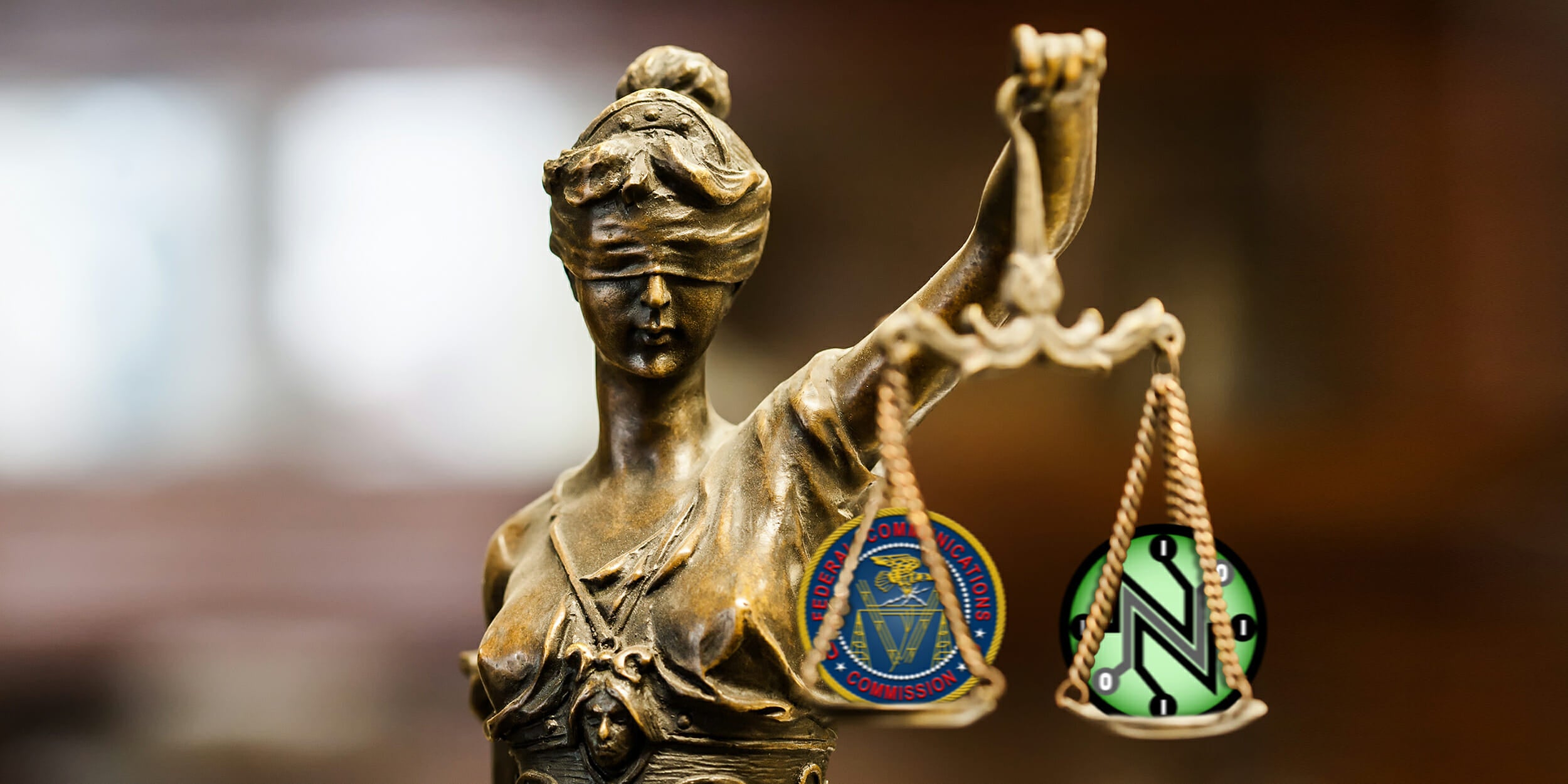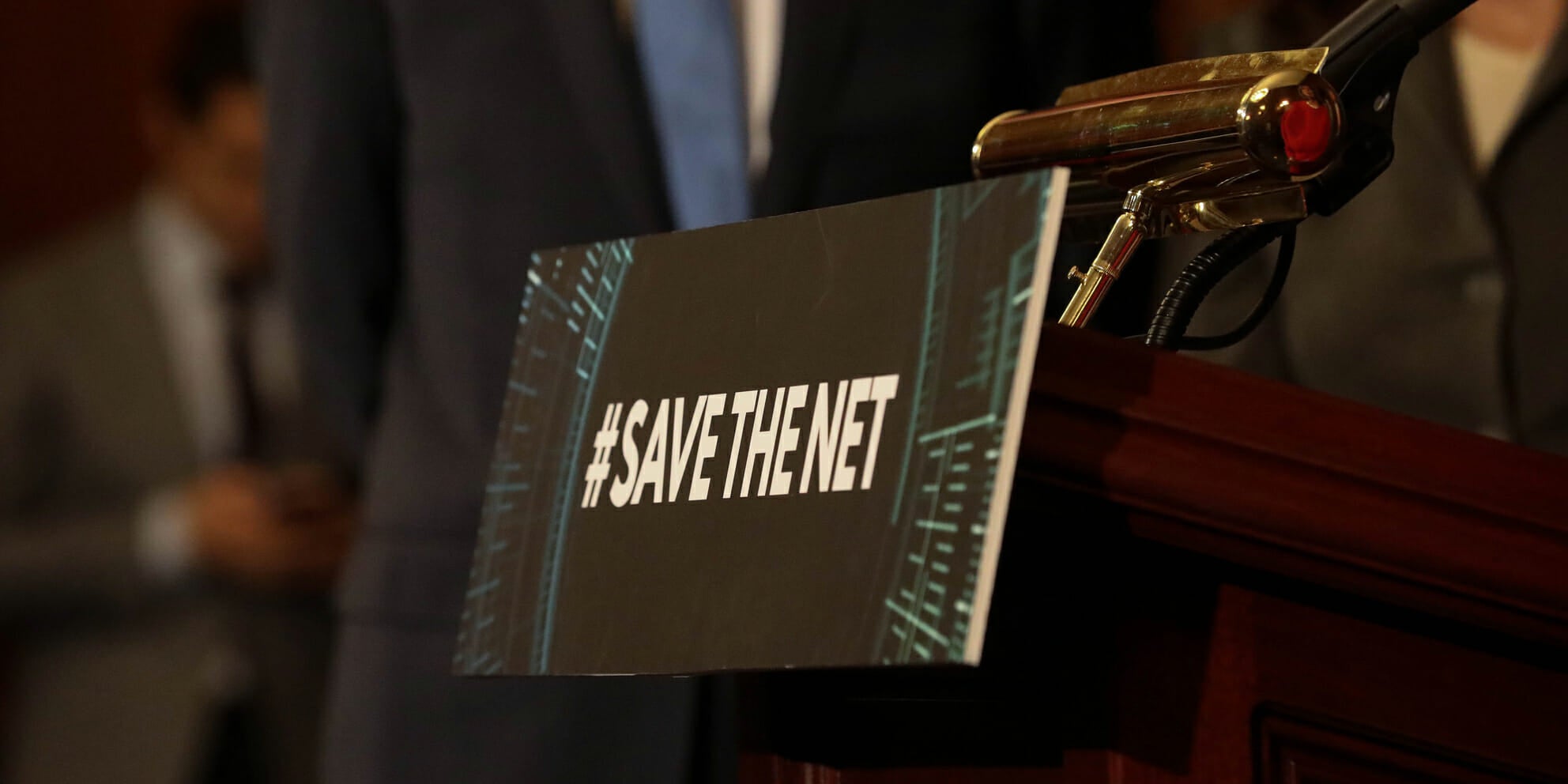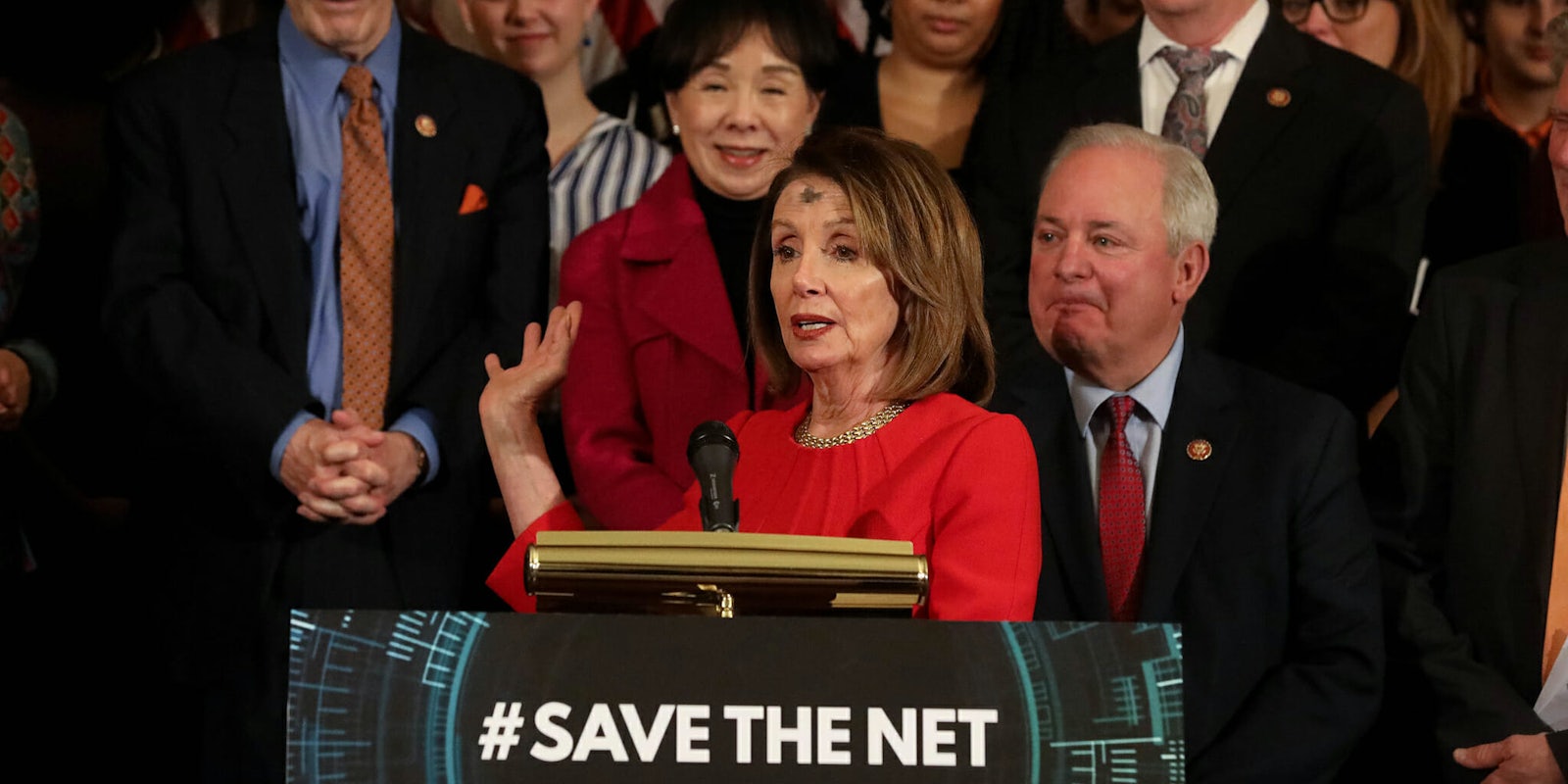Today is the anniversary of the Federal Communications Commission’s (FCC) repeal of net neutrality rules taking effect.
The FCC voted in December 2017 to repeal the rules, but the agency’s Restoring Internet Freedom Order, which undid the 2015 Open Internet Order, needed to get approval from the Office of Management and Budget before it could take effect.
That was June 11, 2018.
The controversial vote set a number of things into motion, making it a busy 365 days: from a lawsuit against the government over the decision, to an effort to use congressional mechanisms to overturn the repeal, to Congress putting a bill through the House that would codify net neutrality rules.
To mark the anniversary, internet rights advocacy group Fight for the Future is hosting an all-day live stream to show that a large number of Americans want to see the Save the Internet Act voted on in the Senate, where Majority Leader Mitch McConnell (R-Ky.) has called it “dead on arrival.”
The bill, which essentially undoes the FCC repeal, passed the House of Representatives in April but faces an uphill battle in the Senate.
Mark Stanley, the director of communications at Demand Progress, said over the past year there have been instances of many of the things net neutrality advocates warned may happen without the rules, most notably Verizon admitting California firefighters’ internet speeds were throttled amid devastating wildfires in August 2018.
However, Stanley added, there has also been enormous public support and activism for net neutrality and attempts to restore the rules in Congress, including millions of people who signed petitions that will be delivered to McConnell on Tuesday.
“For years now people have been engaged, and they’ve continued to be engaged this past year. That’s how it’s going to continue to be until Congress steps up and actually reinstates real rules,”
Stanley told the Daily Dot: “I think going forward too: each time it comes out the ISPs are throttling, or engaging in other anti-open internet practices, it’s just going to be another time it stokes the public’s anger over this issue. I think the public is going to continue to engage until we get net neutrality rules back. Because as long as there are no net neutrality rules, we’re going to continue to see the types of violations we’ve seen in this past year.”
Here’s a quick look at what has happened in the past year, when net neutrality rules officially came off the books at the FCC.
Congressional Review Act (CRA)
Just weeks after the FCC’s repeal went into effect, net neutrality supporters across the country gathered outside the offices of their lawmakers to support an effort to overturn the repeal using Congressional Review Act (CRA) as part of an “Advocacy Day” on June 26, 2018.
The CRA, which would have nullified the FCC’s Restoring Internet Freedom Order, had passed in the Senate a month before the repeal went into effect and advocates wanted to drum up support for a similar measure in the House of Representatives.
For the next few months, net neutrality supporters tried to get their representatives to sign onto the CRA, which needed only a simple majority of lawmakers in the then-Republican-controlled House to pass.
In mid-July, the first (and ultimately only) Republican representative signed onto the CRA: former Rep. Mike Coffman (R-Colo.).
Other Democratic lawmakers seemed to say they would sign onto it, and a steady stream began adding their name to the CRA’s “discharge petition. But in December the effort ended, 36 signatures short of passing.
Federal legal battle & public comments
Amid the CRA effort, a court battle in federal court was also taking shape.
In January 2018—shortly after the FCC’s vote to repeal net neutrality—Mozilla filed suit against the FCC. A number of tech companies and attorneys general from more than 20 states also joined in the court battle.
In February, three judges in the United States Court of Appeals District of Columbia Circuit heard oral arguments from petitioners and the FCC. The petitioners argued about the legality of the FCC’s Restoring Internet Freedom Order and the procedure in which the agency went about passing it.
The petitioners and the FCC answered detailed questions from the judges, with each side laying out their points for around two hours.
A decision from the three-judge panel is expected to come later this year.
READ MORE:
- How net neutrality advocates are protesting the anniversary of the FCC repeal
- New York is halfway to a new net neutrality bill
- Congresswoman predicts Save the Internet Act will pass Senate
That process—including the FCC’s public comment system ahead of its vote—has also drawn ire.
Millions of fraudulent comments were left on the FCC’s website before its repeal vote, including comments with the names of dead people and lawmakers. One study found—after filtering out the fake comments—nearly 100 percent of the comments were opposed to the repeal.

The fraudulent comments sparked an investigation by the New York Attorney General and federal law enforcement, as BuzzFeed News reported at the time.
FCC Chairman Ajit Pai faced questions about the comments and the agency’s initial insistence that it was hit by a DDoS attack during a hearing in August 2018.
Save the Internet Act
While the federal court battle continues to play out, Congress has also taken other steps to try and overturn the FCC’s decision.
In March, Democrats in the Senate and the House introduced the “Save The Internet Act,” getting support from most of the Democrats in the Senate and began an immediate push to a vote in the House. The Save the Internet Act, in essence, would accomplish what the CRA tried to do: undo the repeal, and restore net neutrality rules.
The bill moved swiftly in the House. The House’s Energy and Commerce Committee’s communications and technology subcommittee held hearings, and a bill markup, before voting on the Save the Internet Act.
On April 10, the Save the Internet Act passed through the House 232 to 190, with one Republican voting in favor of it. However, the day before the vote, the White House signaled that should the bill reach President Donald Trump for his signature, “his advisors would recommend that he veto it.”
Things have not gone as smoothly in the Senate.
Only one Democrat didn’t sign on with the rest of the caucus in co-sponsoring the bill: Sen. Kyrsten Sinema (D-Ariz.). Instead, she announced the formation of a “working group” with Sen. Roger Wicker (R-Miss.) to find a “bipartisan solution” to net neutrality, a move that was blasted by net neutrality advocates. (Some House Democrats have also made a similar call following the bill clearing the House).

Senate Majority Leader Mitch McConnell (R-Ky.) also declared the bill “dead on arrival” in the Senate.
Since the bill’s passage in the House, Democrats have highlighted the Save the Internet Act as one of several bills that McConnell has refused to entertain in the Senate, and has prompted criticism from net neutrality advocates directed at the majority leader.
It’s not clear what the final vote tally would be for a potential Senate vote on the Save the Internet Act.
Several Republicans broke ranks with their party and voted for the CRA in the Senate last year, but there is no guarantee those three lawmakers will vote for the Save the Internet Act.
Also, there is the issue of Sinema potentially not voting for it, which would raise the number of Republicans who would have to be convinced to sign on.
Net Neutrality 2020
While Congress grapples with the Save the Internet Act, a number of 2020 Democratic presidential hopefuls have brought up net neutrality as the stump for the chance to take on Trump in the next presidential election.
A majority of candidates have made it publicly known that they support net neutrality in the past, and several candidates including Sen. Kamala Harris (D-Calif.), Rep. Tulsi Gabbard (D-Hawaii), and Sen. Amy Klobuchar (D-Minn.) have brought up the issue on social media, or on the campaign trail.
Klobuchar even named dropped net neutrality during her 2020 announcement speech.
READ MORE:
- 47 House Democrats sign criticized net neutrality working group letter
- Why is Kyrsten Sinema bucking her party on net neutrality?
- Save the Internet Act praised by Democrat FCC commissioners at oversight hearing
Got five minutes? We’d love to hear from you. Help shape our journalism and be entered to win an Amazon gift card by filling out our 2019 reader survey.


